What state are we in?
What state are you in?
Do you feel that everything is “normal” and steady – “business as usual”, or in a constant state of flux and uncertainty, giving you an uneasy even scary feeling in the pit of your stomach?

Coaching in York is in a great state!
After a great week at the International Coaching Week in York, during which so many interesting and important things were discussed, and meeting really great coaches, we left feeling inspired and full of ideas. I met or renewed contact with many great and inspiring coaches and language trainers, and we learnt how to be more agile in our work. How though can we help others to be agile?
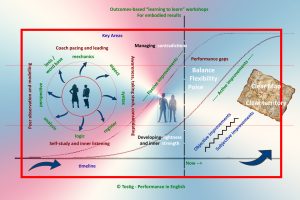
So many different states to be in!
There were many great themes – how to impact in people’s lives and work, helping them to reach their chosen goals; the in-company experience and culture; the importance of cultural understanding that is seen not as a block to communication but a means to greater discovery of our shared humanity; the immense width and depth of the coaching profession from the volunteer sector here in York and as far away as Sub-Saharan Africa, to how organisational coaching models and profiling techniques and questionnaires are so penetrating, helpful and enlightening; how also to harness the energy of the group or team; about the default working styles we tend to fall back into, and how to intervene even very briefly, in powerful ways, emphasising the importance of basing the conversation on verifiable facts. And these sessions were run in very different settings, in modern office suites, old historic buildings, in a field with horses, online, walking in gardens….
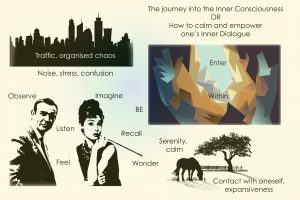
The state of our language
My main interest was how to link the insights of language acquisition science with the framing or contracting of goals or outcomes so that creative solutions may emerge and without adding to any implied sense of failure if the exact original targets or goals are not met. Having a “backwash of expectancy” (as this has been embedded in our thinking from childhood and with the added pressure of schooling and workplace expectations) is a fundamental stress of life, and the coach ought not to reinforce this; so, how to overcome the inevitable sense of destabilisation that impinges on the very coaching conversation itself whether we like it or not?
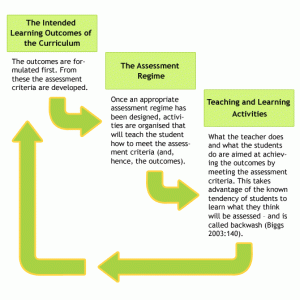
The state of the world
We know that new language is acquired by “taking ownership” of the words and phrases that we identify with, not merely by mimicking parrot-fashion or in the died-in-the-wool Pavlovian “rewards” or carrot-and-stick style. In the words “new language” I include the “new language” of our Inner Talk and self-talk that we find ourselves echoing – in the chamber of our heads – that results from the constant bombardments of the external world and the plethora of conflicting voices and messages, seemingly and confusingly ever-changing and at odds with one-another. As the conversation moved from psychology to culture to political science to art and music, so we entered new states.
The limitations of language
And one state we commented on is that when one has a different native language, the way the words are processed and “felt” is different, and so is the ability of the language itself to handle notions and experience – some things literally cannot be put into words in the same way or at all.
Our state of awareness
One thing I discussed with more than one person was the now ubiquitous assumption of the existence of “levels of skill” where performing tasks, whether as managers, teachers, sports people, in-company coaches working on goal-oriented matters, or counsellors or therapists helping unfortunates towards a better life, or indeed as coaches working towards a qualification, to become a coach!! And as we moved from place to place, building to building and room to room or person to person, so out awareness, and naturally, our states, changed..
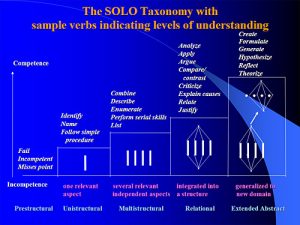
Stating the rules
Needless to say, it is in human nature in many ways to want to apply sets of rules – at the least, mutually-agreed ground rules or group cohesion rules – where a collective endeavour is concerned, and yet, when even we (as experienced coaches) were asked to abide by one-minute or 4-sentence-long self-imposed rules, or to move from table to table at a round-robin event every 15 minutes – and in one session, humorously, on pain of receiving a red card if we did not – we rarely abided by them completely, and conversations in groups could become slightly unevenly balanced and dare I say it, tending towards a more creative even chaotic sort!! This didn’t make them in any sense less enjoyable, in my opinion at least.
Destabilisation is an embodied state
Then I am someone who quite likes the idea of the occasional spanner in the works that throws “the expected” into disarray. Not everyone is the same in this regard, and the “destabilisation” felt by one as a curious intellectual problem dissociated from themselves, may be felt as another as threatening – as it does to me too of course at times. The so-called “frame games” (conscious or unconscious) that people experience (or play) can be equally confusing or disruptive, “are you addressing me as a coach, a mentor/master, follower/leader, or as a fellow human being here?”
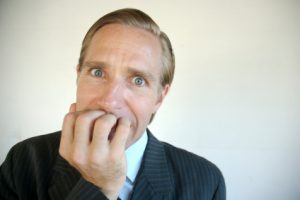
Commenting upon one’s state of mind or of body
Specific comments can be disruptive in this way; if a colleague inexplicably comments “is there something wrong, you don’t look you normal self today?” it can be taken as real concern or as a clever game; the brilliant 1920s books by Stephen Potter on “Gamesmanship” and “One-upmanship” perfectly encapsulated the deliberate attempt to broadside a rival or social inferior using a variety of funny ploys that nowadays seem unkind yet are still embedded in the psyche, in ways that Freud’s work on the neurotic shed so much light on.
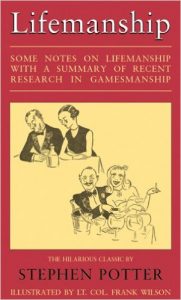
You know the words but do you know the music?
When we include reference to our embodied state, it can help to clarify the meaning of our words (and where those words come into our heads from). Since we can get in a “real state” due to people’s words and just as easily “tread on someone’s toes” and “put them out of kilter” inadvertently, I will hopefully be able to explain more in York’s coaching Circle, how I work with clients in embodied ways to overcome this.
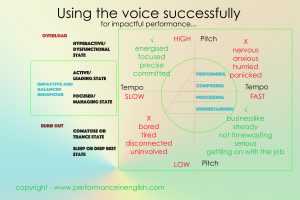
Pitch and Tempo and using the voice to impact performance.
Changes to where the coaching is carried out are important – taking clients away from their busy schedule and environment to peaceful and beautiful settings, walking in nature – role-playing similar but more impersonal scenarios with a more neutral position; stepping out of or away from the experience in real, physical as well as metaphorical ways; and working with the voice to show how the range of tonality, tempo and rhythm – working with the music of language, is truly the embodied link between what we can imagine and what we can actually do.
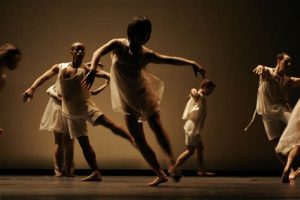
Dancing a dance comes from within: no amount of book-learning or talking about it, can take the place of the real feeling of movement. What we know about language acquisition reveals that prepping for a required outcome performance does not equate in any way to real acquisition – and this will be the same where shifting for changes in the coaching environment are concerned, or indeed any aspect of life.
What if it rains on the picnic?
If we organise a picnic, it’s not simply about deciding we want a picnic and then just having one. We first need to like the idea as well as find others who do, unpack the elements we and they choose and prefer, start to locate what else we need and think of where and when to do these things, before even attempting to actually go ahead. What if it rains on our picnic?
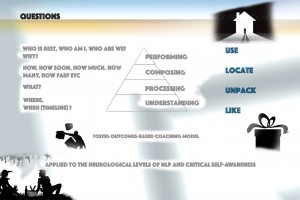
What’s the Objective – and subjective ?
Of equal importance arguably to getting the objective evaluations and validation of the outcomes-based goal – if it is in fact ever attained in quite the ways laid down by syllabuses and discourse models – is to get a subjective feeling of enjoyment and pleasure from everything we do, as in that way we do start to become masters of our own, entering the experience of life, whole and not disrupted, in tune with the reality we help to create.







